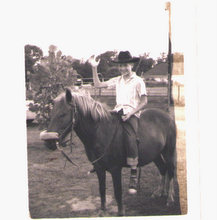
The Pacifica foundation was founded in California in the 1950's and was famous for the left-of center radio station in Berkeley, KPFA. A few years later, WBAI radio was started in New York. A good account of the early days of this station can be found in the book by
Steve Post, "Living in the FM Band".
At some point in my high school career I was introduced to WBAI by my father's hospital bunk mate. My father was recovering from hand surgery and his bunk mate suggested I listen to WBAI. I don't know how it came up in the conversation but it did.
The following September my mother started out for her new position as a school nurse in a local nursing school. She had to leave early so I had the run of the house for half an hour every morning before I had to go to high school.
I was elated and happy. I could have adventures all over the house and no one would be the wiser. One thing I would have control of the was the fm radio in the house, attached to the family stereo. I switched around the dial and put it square at 99.5, WBAI. Funny, no station. I ran into the kitchen to have some orange juice and when I came back a grouchy man was talking about the cheesy coffee shop he had just been in. Then he played a weird band I had never heard of called "
The Incredible String Band". I had discovered a new radio station.
The next morning the radio was tuned again to WBAI. Again silence. At roughly twenty minutes past seven, a testy man started complaining about a sour container of yogurt he had just bought. The man was Larry Josephson. After this repartee, he played a record by Phil Ochs or perhaps it was Tom Paxton.
I always felt that the concept of starting a radio station not at a set hour but when the guy got there was one of the unheralded revolutionary ideas in media. Like an artsy shop in New Hope, it opened when the owner got there, not when the clock said it did. Not surprisingly this trend never made it into the main stream.
That year I listened to the station for the humor and knowledge of people like Larry Josephson, Steve Post, and when I was allowed to stay up late, Bob Fass. I also learned to feel guilty about the way we Americans oppressed women, people of color, the environment, the Vietnamese and countless other things about the terrible state of modern American post-industrial society.
Over the years I, like most baby boomers, have left WBAI for more comfortable pastures. I now listen to NPR, WXPN in Philadelphia for music, and mouse around with the Internet. The baby boomer's radicalism descends into a comfortable, whiny, liberalism.
editor's note: Judging from their website, the Incredible String Band are still performing! I wonder how Licorice is doing. I had a thing for Licorice in high school.
2019 update: Apparently WBAI is off the air although a "Best of Pacifica" format is now being aired at 99.5. I stopped listening years ago (you can't get it in Trenton) but I am a little nostalgic about the many hours I listened in when I was in high school and even volunteered a few times in New York. We'll see what happens.
 Woodstock, was the great event that defined the late sixties. Yet while at once showing how young people in America had changed from their co-horts in the fifties, the seeds of destruction were laid at the same time. Instead of the counterculture being a relatively small group of like minded souls, after Woodstock everybody got hip. College campus became filled to the brim with "freaks". "Far out","bummed out", "down on..." became expressions that everybody used. No longer an exclusive club, everybody went to Woodstock that summer or at least pretended to.
Woodstock, was the great event that defined the late sixties. Yet while at once showing how young people in America had changed from their co-horts in the fifties, the seeds of destruction were laid at the same time. Instead of the counterculture being a relatively small group of like minded souls, after Woodstock everybody got hip. College campus became filled to the brim with "freaks". "Far out","bummed out", "down on..." became expressions that everybody used. No longer an exclusive club, everybody went to Woodstock that summer or at least pretended to.



